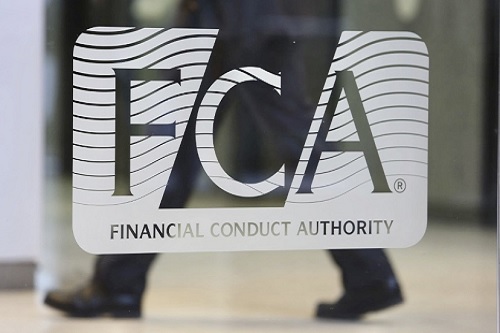QBE responds to FCA Dear CEO letter on fair value for policyholders

Authored by QBE General Manager UK, Automotive Protection, Simon Fletcher
Consumer empowerment drives GAP product launch, as FCA issues warning to those failing to ensure fair value for policyholders
In September, the Financial Conduct Authority (FCA) penned a letter to all insurance companies beginning ‘Dear CEO’ – and ending with a warning.
Matt Brewis, FCA Director of Insurance wrote “Too often we find significant failings […] in the last year we have taken supervisory action against firms where we have seen […] the continued sale of products not providing fair value [and] paying away substantial amounts of commission to third parties where it was not clear how those commission levels had been assessed as being fair value.
“We are concerned that not enough action is being taken to ensure good outcomes for customers.”
Under Consumer Duty regulations, dealers have a responsibility to know and understand the full distribution chain – including the commission value – to ensure fair value outcomes for the customer. Since July, the implication is clear: where the number and cost of parties cannot be justified, dealers should seek a direct relationship with the product manufacturer – in this case, the insurer.
The FCA has instructed insurers manufacturing GAP products to take immediate action to evidence that consumers are receiving fair value within the next three months.
“We expect firms’ Boards to ensure concrete, proactive action is taken throughout the firm in line with our rules and expectations and not to treat them as a compliance exercise or wait for us to force action,” Brewis stated.
“This is an early signal of the work we’ll be doing under the Consumer Duty […] If the firms are unable to prove they’re providing fair value to their customers, they should expect further action from the regulator.”
As far as we can see, the FCA review and recent communication with insurers is likely to drive two broad outcomes:
As distributors’ obligation to understand who sits within the value proposition is realised, some dealers will stop selling GAP products rather than tackle the additional financial costs and compliance risk.The strategic intent of the FCA to align product distributors to product manufacturers will be understood and actioned, with more dealers looking to optimise sales within the Consumer Duty regulations. This is likely to require dealers to review current processes before going out to market and to consider new propositions.
Our approach at QBE Automotion is to provide insurance options that place good consumer outcomes at the heart of our product offering – and which are an attractive choice for those dealers looking to achieve the same.
QBE Automotion has recently launched a selection of four new GAP products for the UK market, all of which are underpinned by our commitment to offer fair value to consumers. These GAP products, (which we call Automotion Asset Protection Insurance) combine Financial Shortfall Asset Protection and Return to Invoice cover, to give best value to policyholders.
Combining these two types of asset protection insurance options into one product allows a much greater degree of flexibility to tailor the cover to meet the consumer’s needs. All four of QBE’s Automotion asset protection insurance products will cover customers however they choose to purchase their vehicle, and whether they claim when that vehicle is two weeks or two years old – ensuring fair value for policyholders.
As dealers come alive to the FCA’s requirements of good consumer outcomes for GAP insurance distribution, QBE Automotion is a direct insurance partner ready and waiting to help selling distributors minimise indirect costs and provide assurance to customers that they’re covered for all eventualities.
What should dealerships and consumers be aware of to ensure fair value for all?
Dealers
Dealers and selling distributors should review contracts and service level agreements (SLAs) within the distribution chain to ensure that they meet the Consumer Duty requirements to deliver fair value and positive outcomes for policyholders. Unnecessary costs will indicate the need to restructure the supply chain and approach insurers directly.Communicate with distribution chain parties to ensure everyone understands the Consumer Duty guidelines – you are responsible for compliance from beginning-to-end to protect and promote good customer outcomes.Communicate with customers openly and clearly so they understand the product, terms and conditions, and all costs at the point of purchase.Evidence customer outcomes – the FCA will want to see evidence of dealers’ processes and outcomes backed with data. Where poor outcomes are identified, immediate steps must be taken to address the root cause.Monitor and evaluate customer experiences, outcomes and costs on a regular basis and review processes wherever needed to prioritise the FCA’s Consumer Duty guidance.Identify potential risks or obstacles to achieving the goals set in the Consumer Duty guidance and develop a plan to address any shortcomings which can be presented to the regular if needed.
Consumers
You do not have to take out asset protection (GAP) insurance. This is optional insurance in addition to the purchase of your vehicle.You can buy asset protection insurance products through your supplying dealer or directly from an insurance company to avoid third-party fees. Don’t be afraid to ask for an invoice breakdown to highlight any fees.Don’t feel pressured into buying asset protection insurance if you are unsure; review the product and ensure it meets your needs before committing to purchase. You should be able to buy this product from your supplying dealer no later than 100 days after purchasing the insured vehicle.You may cancel your asset protection insurance at any time. If cancelled within 30 days and no claim has been made, then you can receive a full refund. If cancelled after 30 days and no claim has been made, then you can receive a pro rata refund.Always review the policy Terms and Conditions document for a full list of exclusions and limitations





